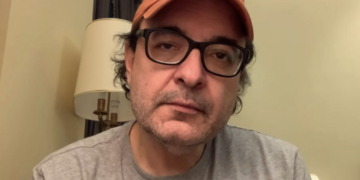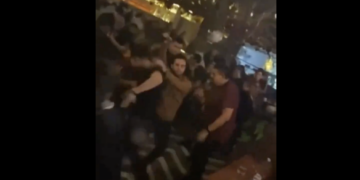Robert De Niro, a renowned actor, recently faced a major setback in a New York courtroom as a jury awarded a $1.2 million judgment against his production company. The dispute arose when De Niro filed a claim against his former personal assistant, Graham Chase Robinson, alleging embezzlement and seeking $6 million in damages. However, after 5 hours of deliberation, the jury rejected De Niro’s claim, indicating a significant blow to the actor’s legal pursuit.
Contrastingly, the jury displayed empathy towards Robinson as they awarded her $1.2 million in a countersuit. The lawsuit was filed against De Niro’s company, Canal Productions, by Robinson for a total of $12 million, claiming workplace harassment and gender discrimination. The outcome of the trial exhibited the complexities and nuances of legal battles in high-profile cases, shedding light on the contentious issues of workplace dynamics and power imbalances in the entertainment industry.
During the 2-week trial, De Niro took the stand, revealing the tensions between him and Robinson. He admitted to referring to her as a “f**king spoiled brat” when she failed to wake him for a crucial appointment. Furthermore, allegations emerged regarding De Niro’s alleged requests for Robinson to scratch his back, which he dismissed as non-sexual, while Robinson deemed it as “creepy” and “disgusting.” These revelations added a layer of intrigue and controversy to the trial, capturing the attention of media and public alike.
The courtroom drama also exposed the rift between Robinson and De Niro’s girlfriend, Tiffany Chen, whom Robinson described as a sociopath. The inclusion of personal dynamics and interpersonal conflicts within a professional setting further heightened the intensity of the trial, providing a rare glimpse into the personal lives of public figures and their associates.
Amidst the emotional and contentious proceedings, the trial spanned 8 days and culminated in a verdict that reverberated beyond the courtroom. The media coverage surrounding the legal battle underscored the public’s fascination with high-stakes legal disputes involving celebrities and industry titans. The intense scrutiny and public interest in the case showcased the enduring allure of legal drama and courtroom showdowns, as well as the complex interplay between power, reputation, and personal relationships.
The publicized nature of the trial and its multifaceted dynamics served as a reflection of the broader societal conversations surrounding workplace conduct, power dynamics, and workplace equity. The outcome of the case underscored the significance of legal accountability and emphasized the enduring complexities of navigating interpersonal relationships and professional boundaries in high-profile environments. The repercussions of the verdict reverberated throughout the entertainment industry, prompting discussions about the ethical responsibilities of employers and the rights of employees in maintaining a safe and respectful work environment.
In retrospect, the trial encapsulated the multifaceted nature of legal disputes and their profound impact on individuals, reputations, and the broader cultural discourse. As the legal saga concluded, it left a lasting impression on both the legal landscape and the public consciousness, serving as a compelling testament to the enduring allure and complexity of high-profile legal battles.































































